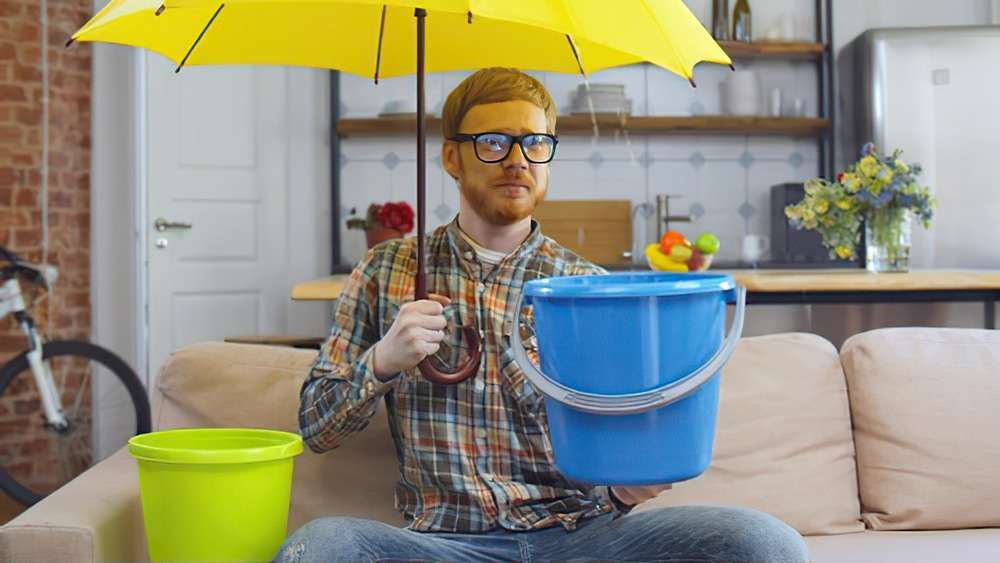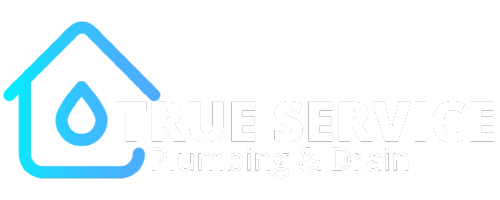Plumbing problems may come in an array of different forms. You have small minor and relatively inexpensive issues, like say a leaky faucet.
On the other hand, you can have major issues capable of causing severe damage to your property. Basement flooding or a backed up sewer may fall into this list.
Assessing plumbing issues may appear daunting at first. But, over time, you can learn to identify key symptoms. Knowing these can help you with determining the severity of the problem.
Most common plumbing problems are easily fixable with the proper tools. If you’re unsure about a particular issue or if the problem appears serious, best to call a professional plumber.
Below, we discuss the common plumbing problems an average household will likely encounter. Also, we will explore the many ways you can prevent these common issues from occurring in the first place.
As the saying goes–prevention is better than cure, this cannot be anymore true for plumbing. You will save yourself a lot of time and headache if you can prevent problems from occurring.
Also knowing best how to act during a plumbing emergency can go a long way, especially if you can limit the damage.
Here are the top ten common home plumbing issues, the causes, and how to fix them. Most of these are simple and easy to deal with. However, for some, you will need professional help.
Dripping Faucet
A dripping faucet can be a huge money sink. The excessive water adds up, resulting in a lot of waste.
Say you faucet drips once every second, that would end up being 86,400 drips each day! If 15,410 drips make up one gallon, you would end up wasting close to 5.7 gallons of water every day. This would amount to a yearly loss of about 2,000 gallons.
This would be the amount of water for one leaky faucet. Imagine if you have multiple faucets in your household leaking.
The cumulative water waste is just unimaginable. Especially since they’re just small droplets. The reality is that small things really do add up over time.
This snowball effect will certainly reflect this on your monthly water bill. All this is compounded by the fact that metal and water don’t mix well.
The constant dripping may result in the formation of patches of rust in your sink. Similarly, water and wood don’t go together either. Consistent exposure to water will rot wood. Rotten wood is a fantastic breeding ground for mold. This can pose a severe health risk.
With both scenarios, you risk leakage. Both surfaces will deteriorate to the point where holes will form. This can become costly if ignored. Fixing a dripping faucet is fairly simple. Try replacing the O-ring to see immediate results.
Slow Drainage
A common problem many households experience is slow drainage. Usually, the cause for this issue is due to a blockage in the pipe.
An obstruction in the drain will reduce the water flow depending on the severity. This will occur if you pour things down your drain that you’re not supposed to.
Certain substances, like fatty and starchy foods can easily stick and accumulate in your drain. These can quickly form obstructions, which can result in slow drainage.
This can be remedied by either plunging or snaking your drain. Use a separate sink plunger on your kitchen and bathroom drains. Do not use your toilet plunger, as this is an unsanitary practice. Have a drain auger on hand and learn how to use it.
Homemade natural drain cleaners are also a good option. These can be made easily using ingredients you can commonly find in your home. Drop half a cup of baking soda down the drain. Follow up with 1 cup of vinegar. Let this sit for about 10-30 minutes. Rinse with hot water afterwards.
You should be cleaning and flushing out your drains on a monthly basis. This will prevent drain obstructions from occurring in the first place.
Clogged Drains
Similar to a slow draining sink, a clogged drain occurs when there is a blockage in the drain. This blockage may be due to an accumulation of unflushable material.
To clear a blockage, you can use either a plunger or a drain snake. You can also attempt to dissolve the clog with the use of a homemade drain cleaner.
If left alone, this issue will often worsen over time. You can minimize or prevent this issue from happening by investing in a drain strainer. This will prevent unwanted materials from entering your drain.
Running Toilet
A running toilet can end up being enormously costly. Similar to a leaky faucet, a running toilet, however, can be far worse.
You could end up losing up to 200 gallons of water per day. One common reason for this can be due to a leaking flapper valve. You can easily purchase a replacement at your local hardware store.
Another common cause is sediment build up. This build up can negatively affect your toilets’ flushing and filling. If you’re noticing a higher than average water bill, you may have a hidden leak.
There’s a neat trick to check for this. Start by putting food coloring in the tank. After, observe if any of it makes its way into the bowl without flushing.
Have a professional plumber come in to inspect your toilet. It is possible you may need to replace more than one of the inner fittings.
Clogged Toilet
Clogged toilets are both very annoying and inconvenient. They’re messy. They’re smelly. They can be a huge hassle to clean up. Especially if your bowl overflows and waste gets all over your bathroom floor.
A toilet clog is usually caused by a buildup of unflushable material. You unclog a toilet by using either a flange or accordion plunger.
If you’re dealing with a difficult clog and plunging doesn’t work, you would need to use a toilet auger. A normal drain snake will not work as well, as they’re far better suited for sink drains. A toilet auger is made specifically for toilets.
They’re shaped in a way to easily fit and access a toilet drain. They also feature a protective covering. This is so you can avoid scratching or damaging the ceramic bowl when operating the auger.
If both of these methods fail to unclog your toilet, you may be dealing with a more serious problem. The toilet clog may be further down in your drain system. Even worse–the blockage may be in the septic or sewer line.
If you suspect this to be the case, best have a professional plumber look at your drains. To prevent this issue, be more mindful as to what you flush. Stick to flushing paper and human waste only.
Water Heater Malfunction
Most households will discover this problem during their shower routine. If your hot water frequently cuts out during a shower, it may be due to a water heater malfunction.
Your water heater may fail due to a variety of reasons. The pilot light may have gone out. Sediment build up in the tank can cause issues. A thermostat malfunction will disrupt hot water supply.
For this issue, you may need the services from a variety of tradeskill professionals. Depending on the cause of the problem you may need to bring in a plumber, natural gas, or electrician to help resolve this.
You will need to replace your water tank heater if you discover a leak. Unfortunately, this issue is irreparable.
Low Water Pressure
Low water pressure is a frustrating experience. When using your plumbing fixtures, everything takes much longer. From washing dishes, to taking a shower–everything becomes incredibly inconvenient. It can negatively affect your quality of life.
This issue may even be a symptom for an even larger issue within your home. There are a wide range of possible causes for low water pressure.
For starters, the issue may lie with your fixtures themselves. Mineral build up in your shower head and faucets will lead to lower water output. Pipes supplying water to fixtures may have a blockage. This would affect the output of multiple fixtures at the same time.
Another possibility for this issue may lie with your water main. The main shut-off valve might not be turned full on. The pressure reduction valve regulating your home’s water pressure may be malfunctioning.
The resolution to this issue will vary. It can be as simple as fully turning on the main-shut off valve and cleaning fixtures. For pipe blockages and pressure regulator valve malfunction, you will need the help of a professional plumber.
Leaky Pipes
When you think of plumbing problems, a leaking pipe often comes to mind. This issue can be more than just an inconvenience.
This problem, if not dealt with quickly, can cause immense damage to your property. Water damage due to a leaking pipe can result in more problems.
For instance, it can ruin your floors and furniture. The constant dampness is a prime breeding ground for bacteria and insects.
Leaks will often occur at pipe joints. But, they can happen at other spots of your piping, depending on the circumstance.
If your pipes freeze or if you have high water pressure, your pipes can rupture, resulting in a leak.
A temporary solution to this problem can be done by using tape and fillers. For a more permanent fix, you would need to replace a portion of the piping or fittings.
You will likely need the help of a plumber to resolve this issue, depending on the severity. Unless, of course, you are comfortable performing a pipe refitting or replacement.
Broken or Leaky Water Main
With households on a public water distribution system, there are two components. The public water main is the main pipe that delivers water to your neighborhood.
Then, there is a lateral delivery line. This pipe extends from your home, across the property line to this water main. This line connects your home to the water main, which then supplies your household with water.
If the public water line were to break, the municipality is responsible for fixing it. This would not be your issue to deal with. However, if the lateral line on your property were to break, you will be solely responsible for the repair.
Water main breaks take a lot of effort to repair. Major repairs will require heavy equipment. Often needing to dig up trenches to access the broken portion of the line. Plumbing professionals will be a must. This is certainly not a DIY job.
A leaky water main, while not as serious, will still need quick attention. The leak can become a break if left alone long enough. Resolving this issue will need heavy machinery and digging as well.
Sewer Backup
To put it bluntly, a sewer backup is a nightmarish experience. They can be a nasty and expensive ordeal.
Begun to notice multiple plumbing fixtures start malfunctioning? Along with a sewage-like odor coming from your plumbing, you’re dealing with a sewage backup.
The responsibility for fixing this issue falls on the location of the blockage in the sewer line. If found within your property line, then you’ll be the one dealing with it.
If on the city side, then your local municipal water company will fix it. You will need the help of a plumber to initially locate the blockage. It may be worth contacting your city, however, if you suspect the blockage is city side.
There are three primary causes for a sewer backup. Firstly, the sewer main is clogged. You will need the help of a professional plumber to resolve this.
Clogs like this will occur putting unflushable materials down your toilet. Putting certain foods down the drain that are fatty and starchy will result in clogs over time as well.
Second cause for a sewer backup are tree roots. Moisture attracts tree roots. This attraction will cause roots to push through existing cracks in your sewer line to access it. They will invade the line and begin to grow inside, resulting in a blockage.
Lastly, old sewer lines can wear out and break down. If you live in certain parts of your city which have older sewage systems, you will experience this.
In the past, sewer lines were built from cast iron or clay. These are more prone to breaking down over time. In contrast, modern sewer lines are made of plastic. These last far longer and are much more durable.
Plumbing Repair With True Service Plumbing
If you’re currently experiencing a plumbing issue or require expert advice, call our professionals at True Service Plumbing.
We are available 24/7 to take your call and respond to emergencies as quickly as possible.
Our licensed plumbers will assess your home’s plumbing system and determine the root cause of your issue, and perform the services necessary to get your plumbing up and running again.
From burst pipes, leaky faucets, to drain rooting and more – True Service Plumbing has your back when it comes to all things plumbing.


